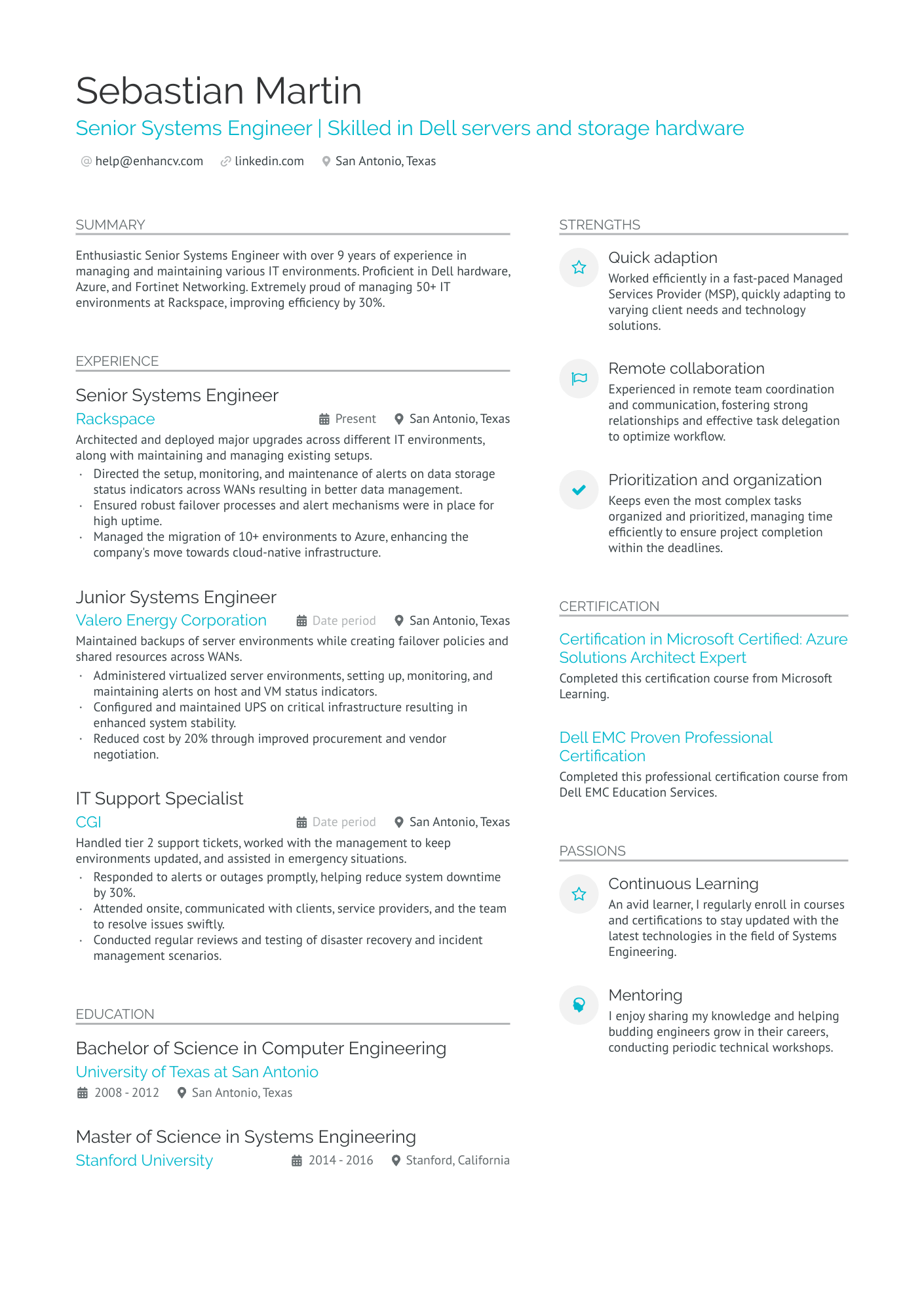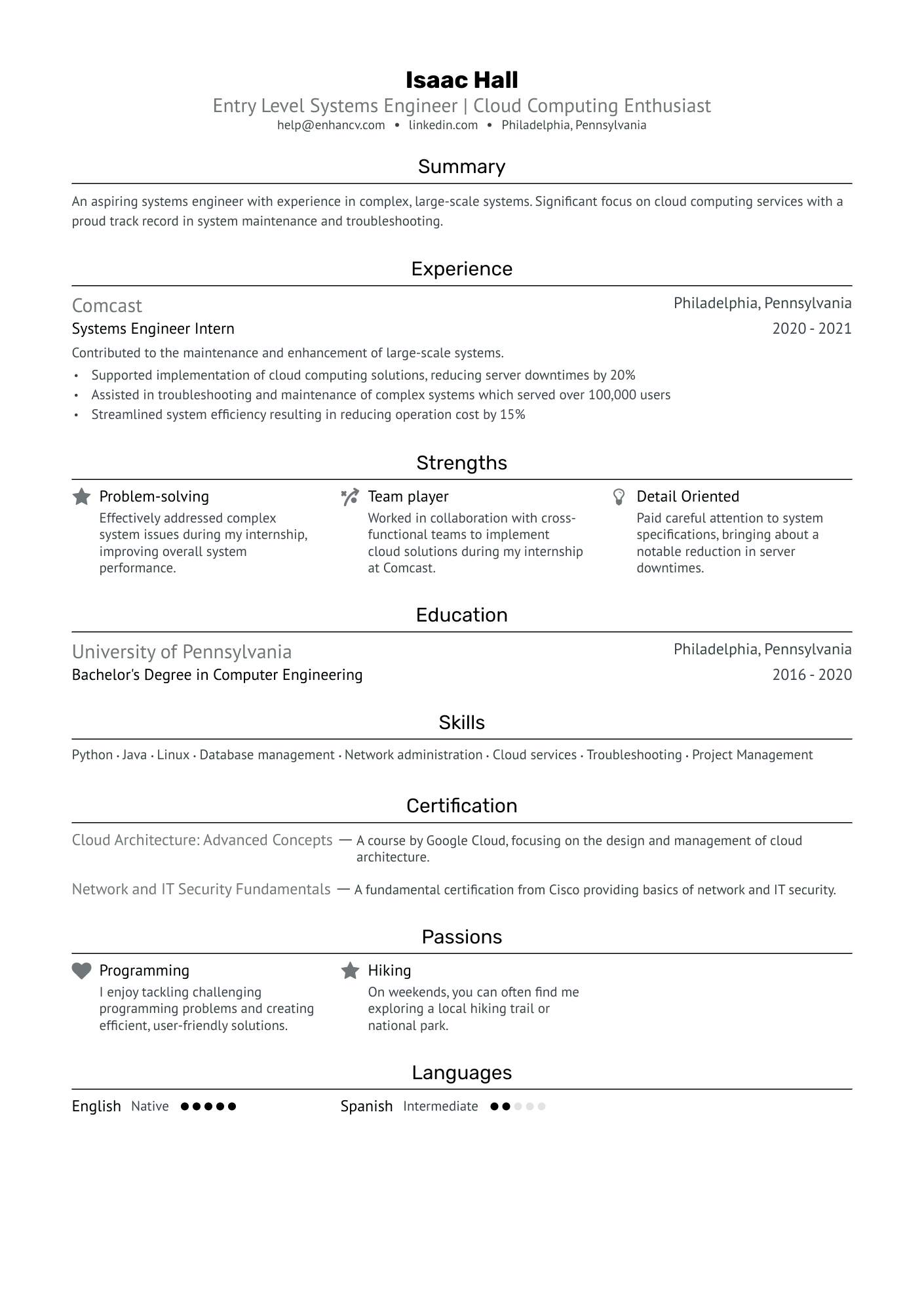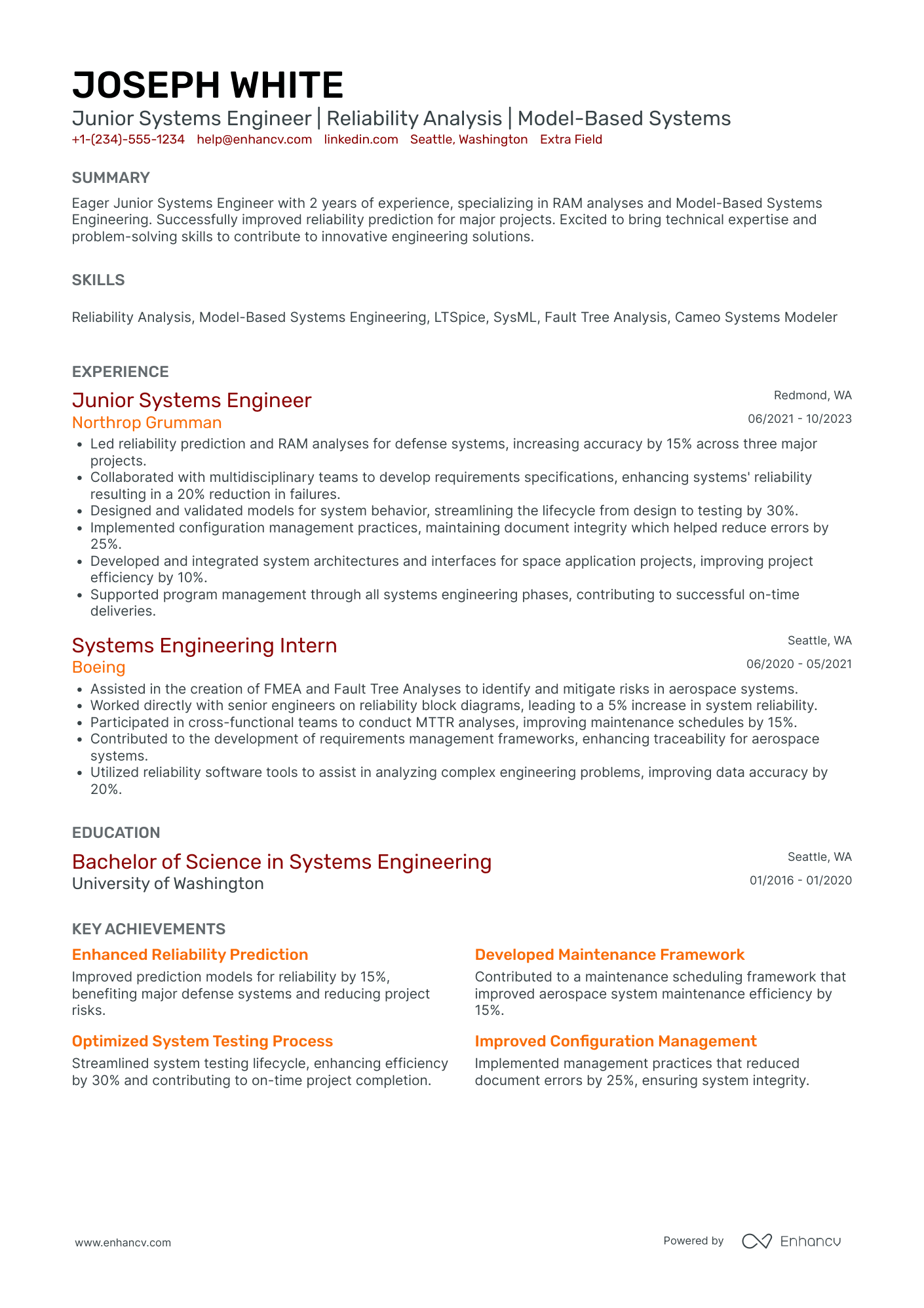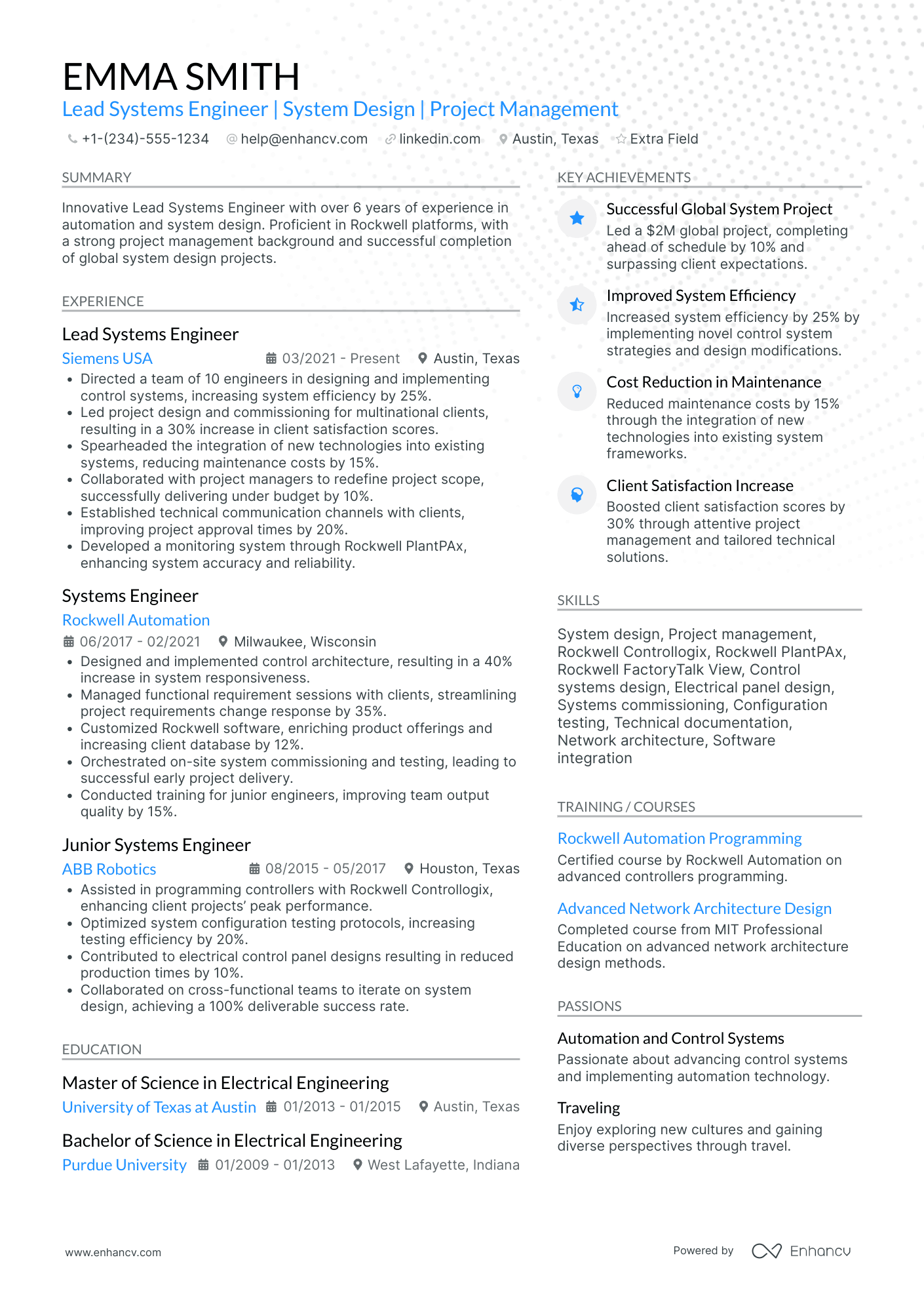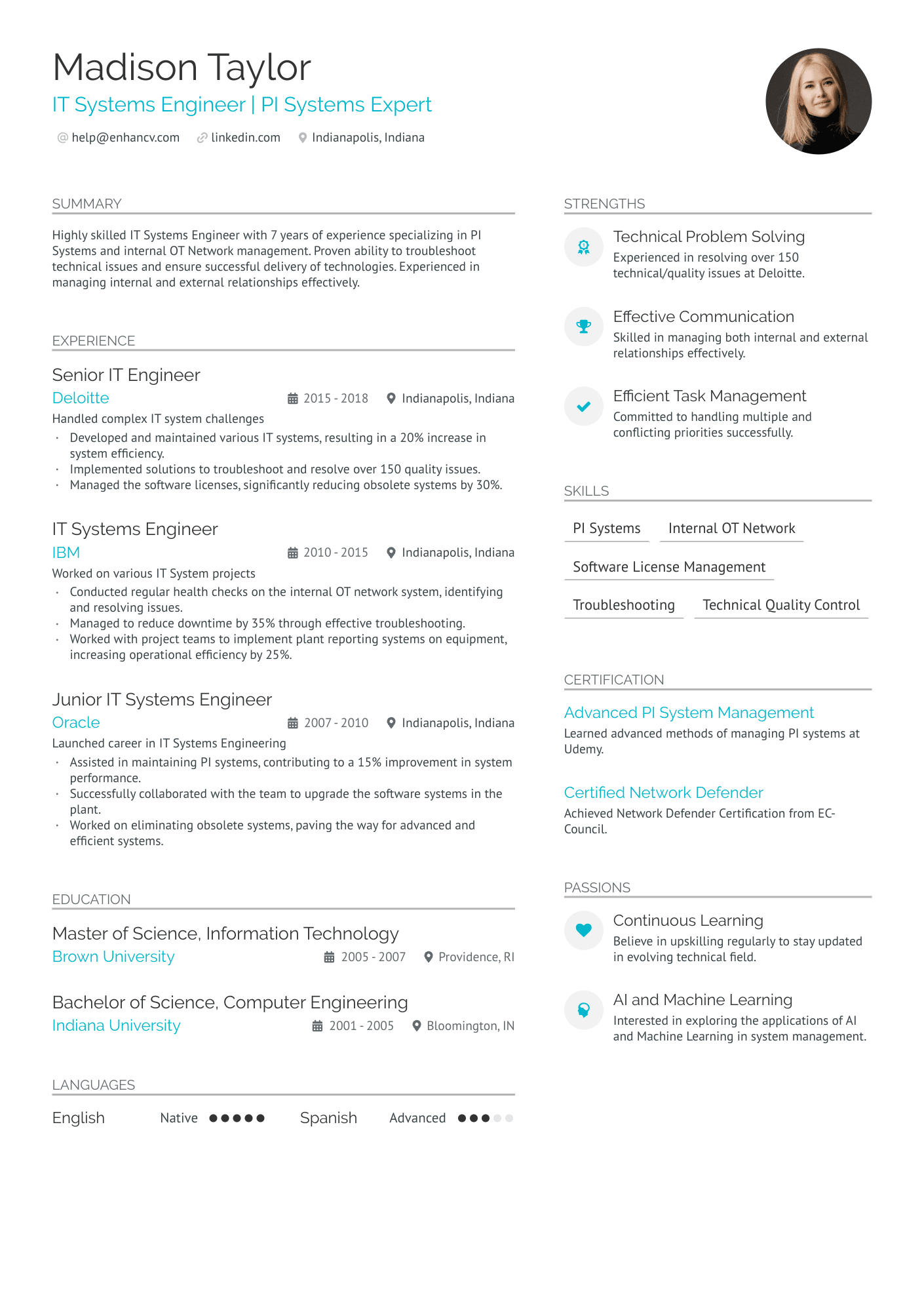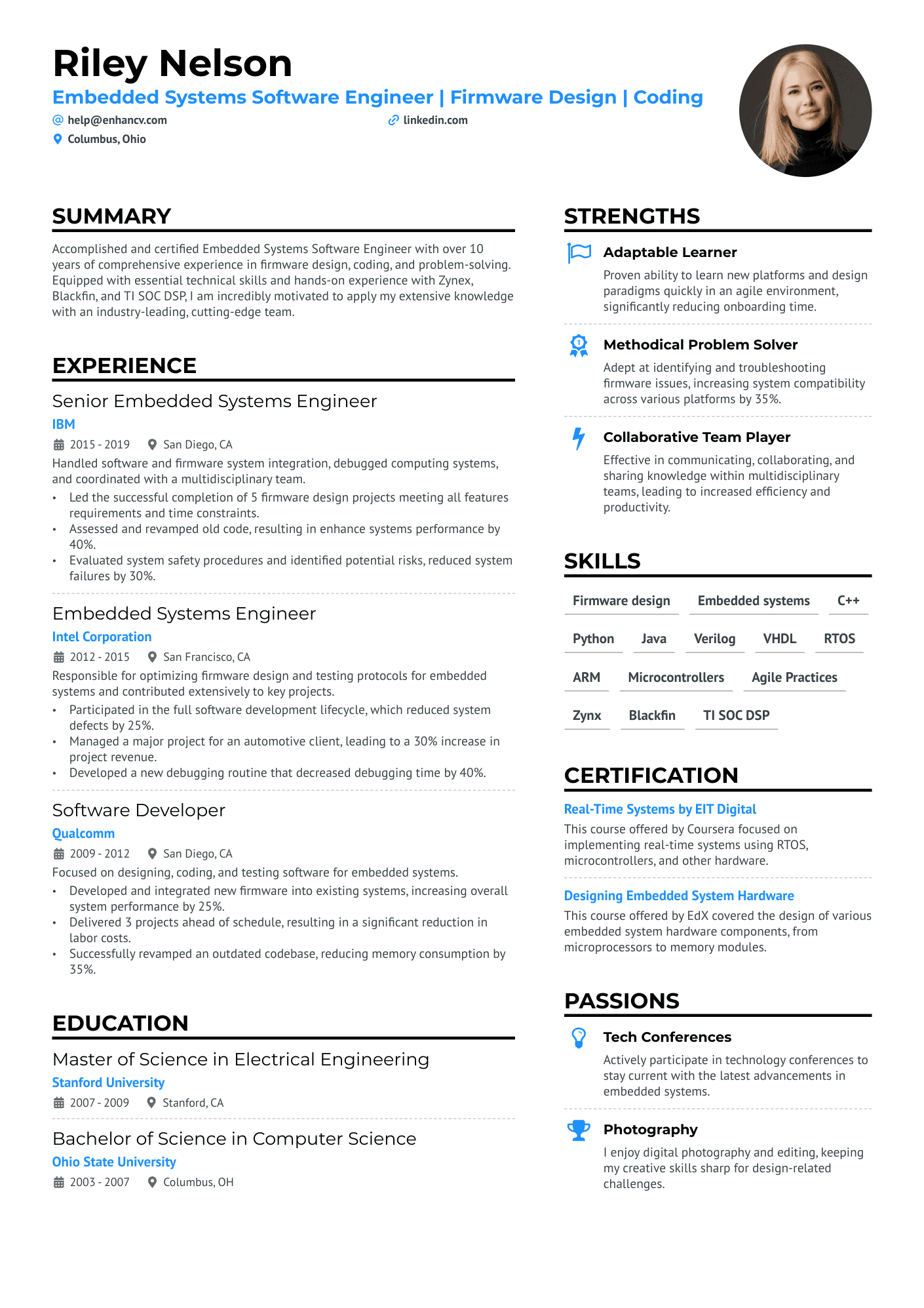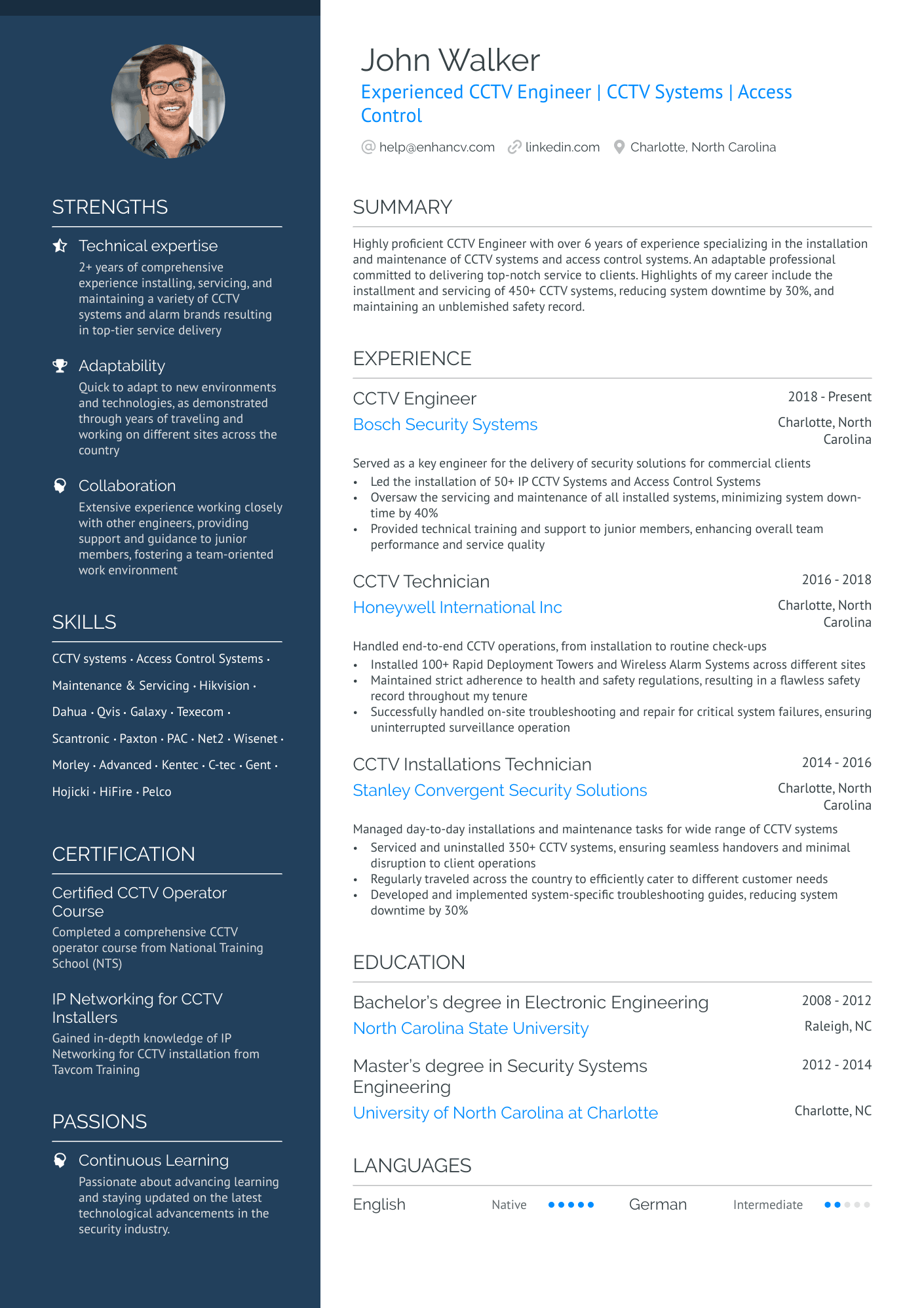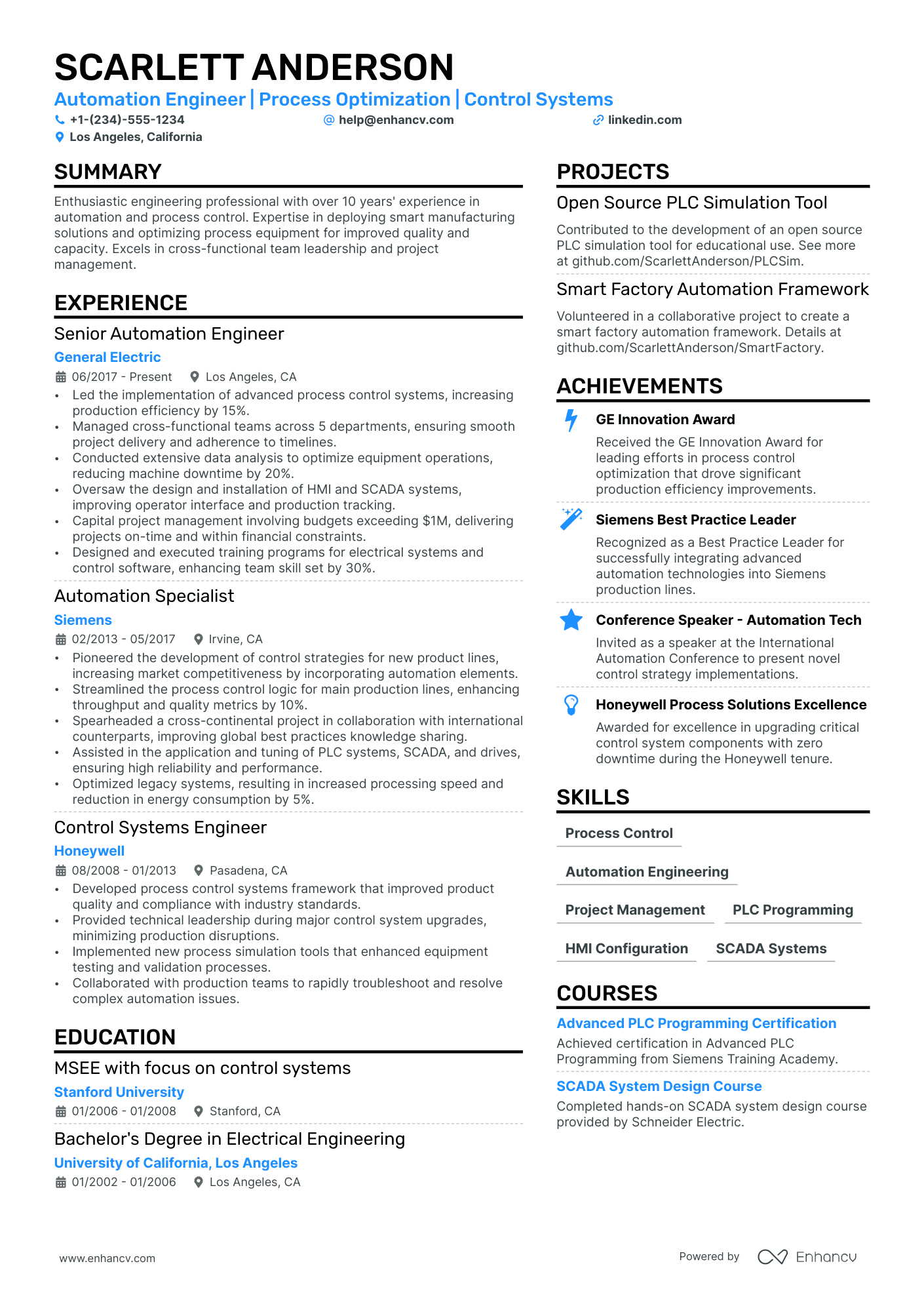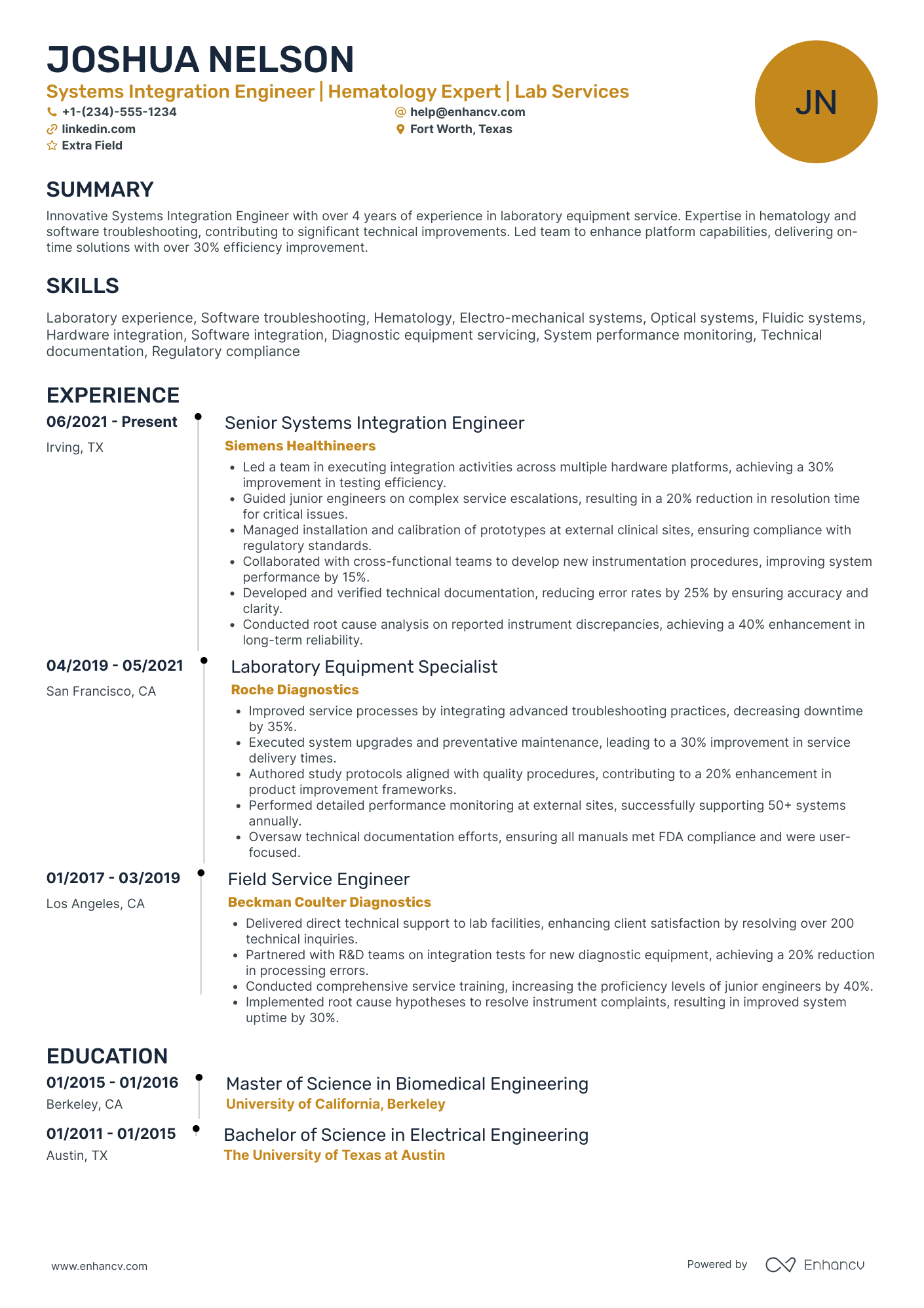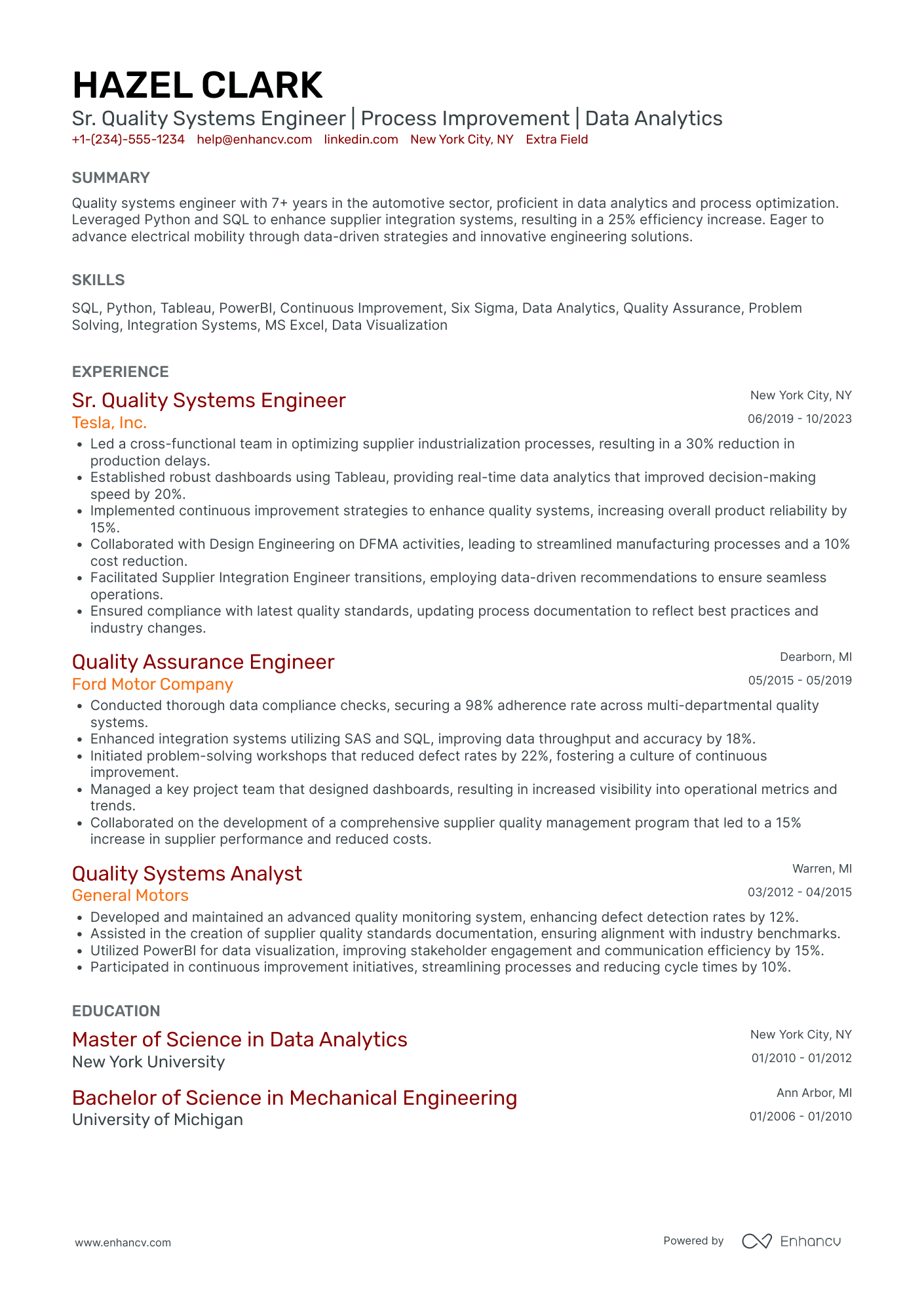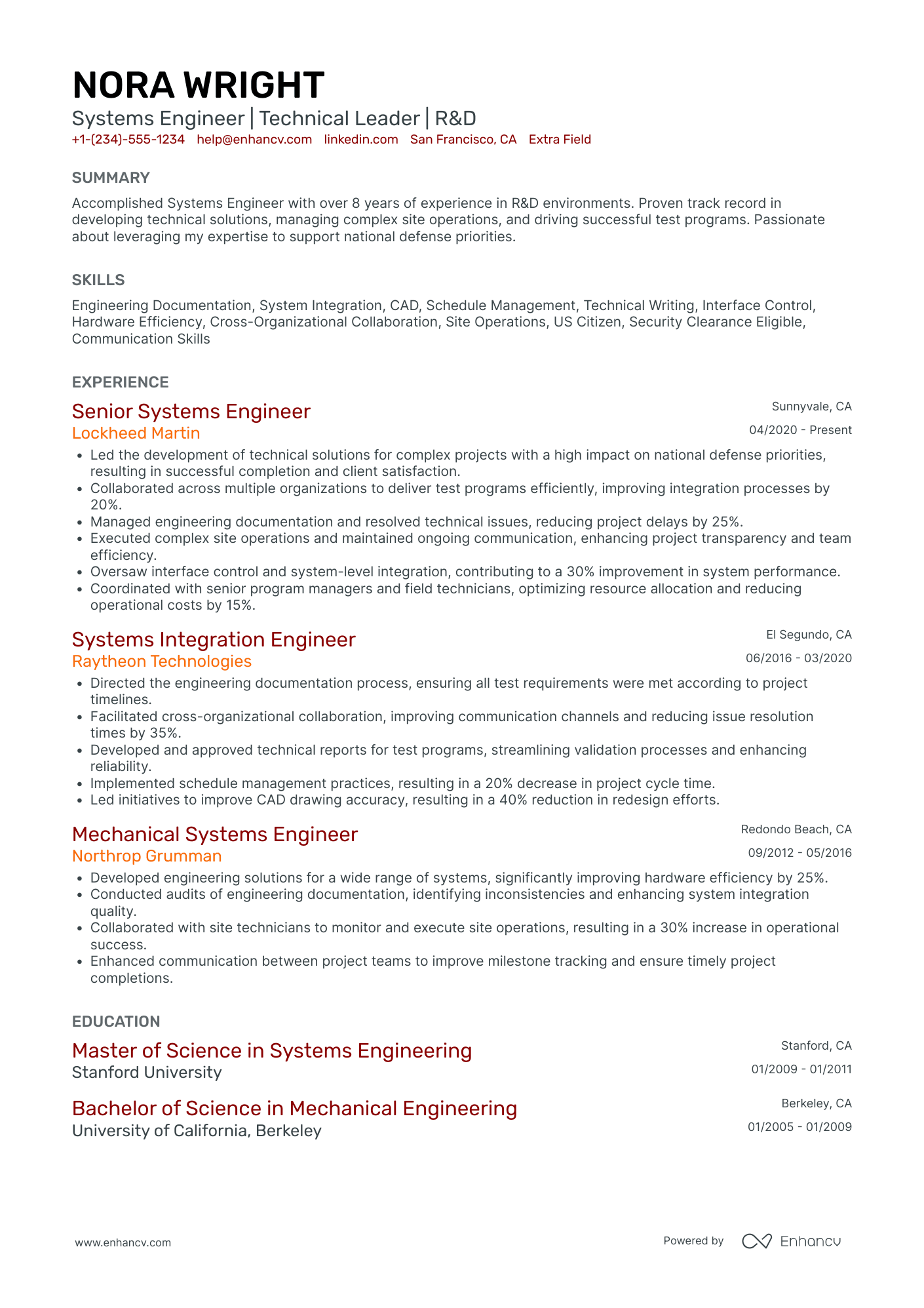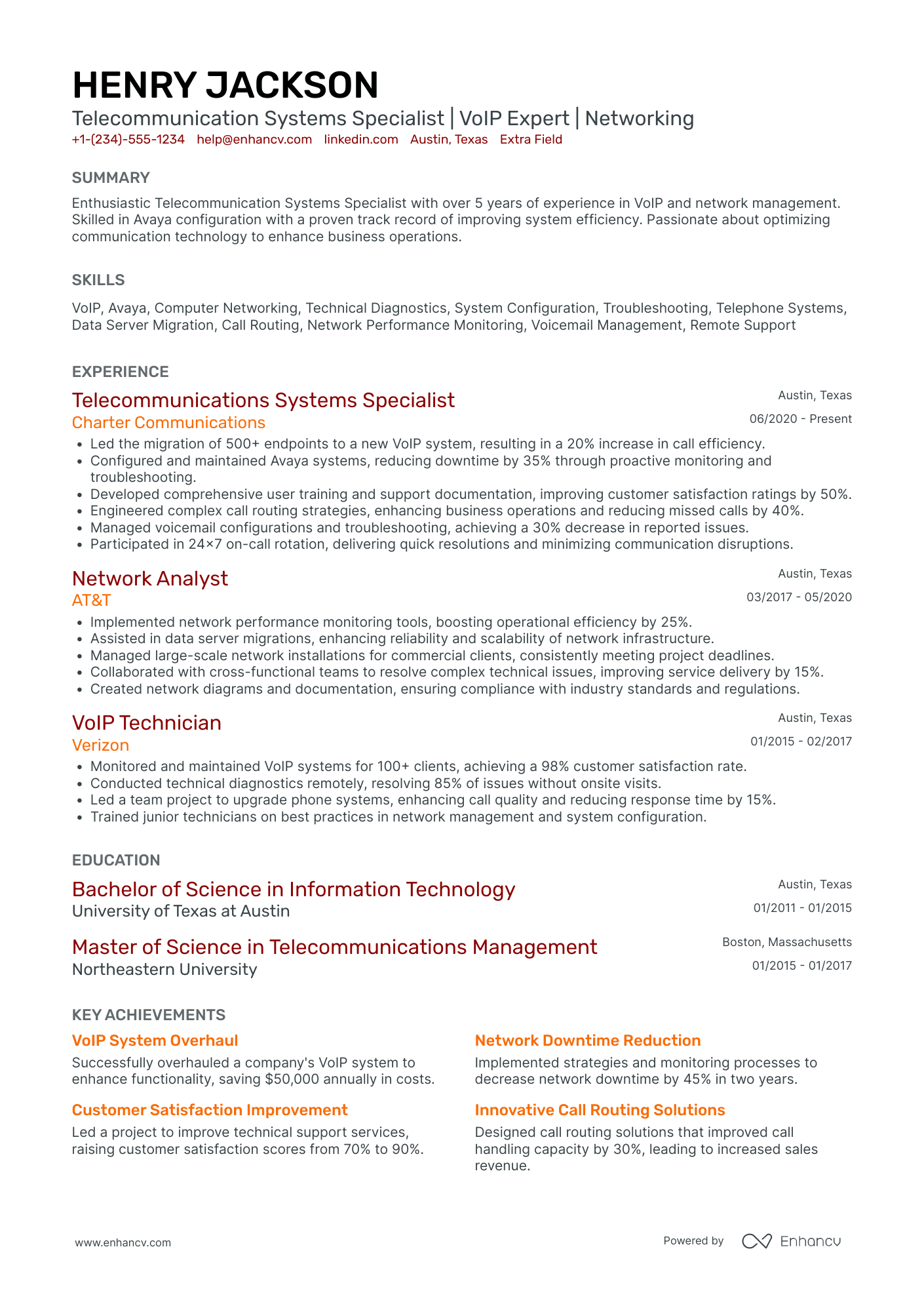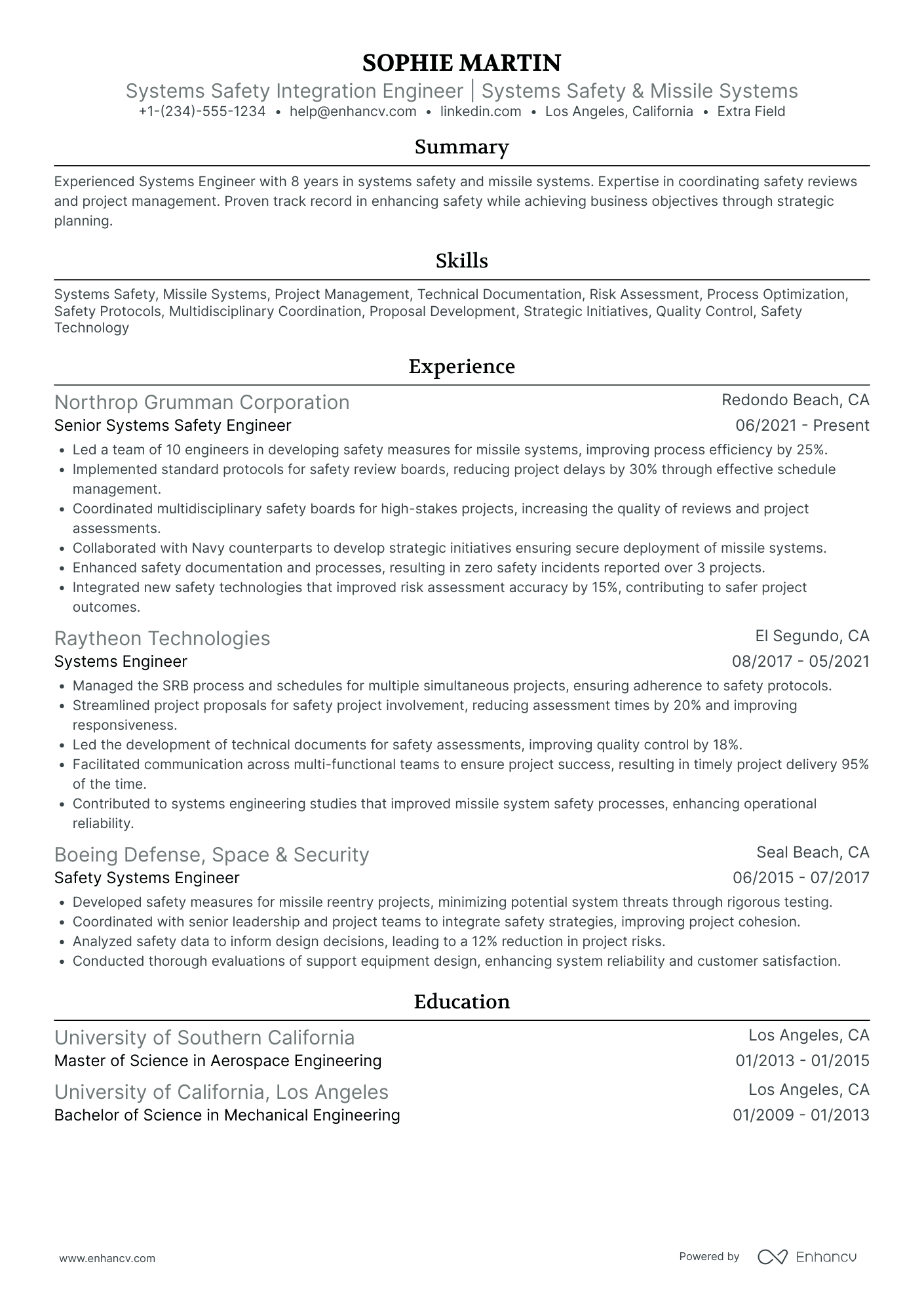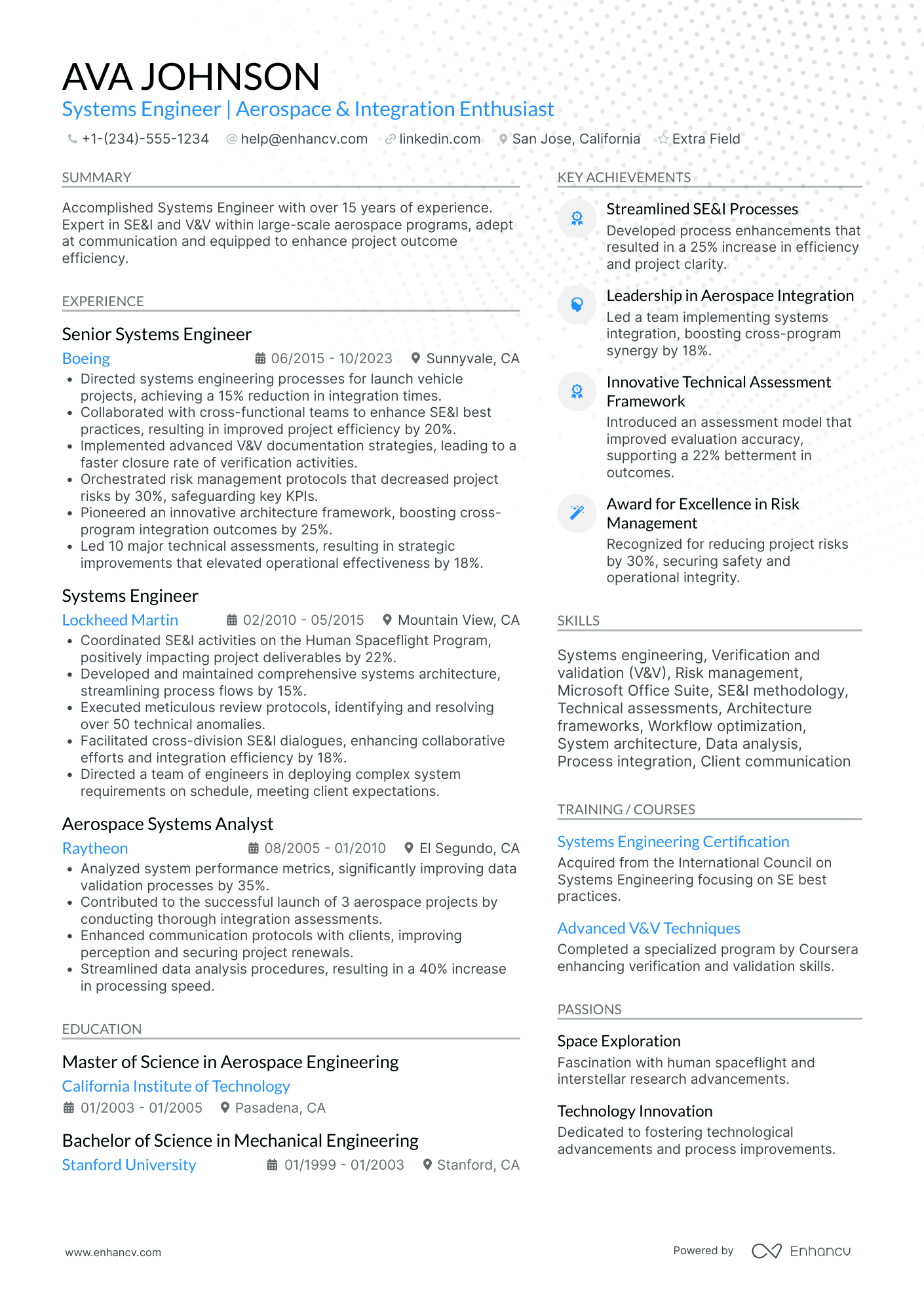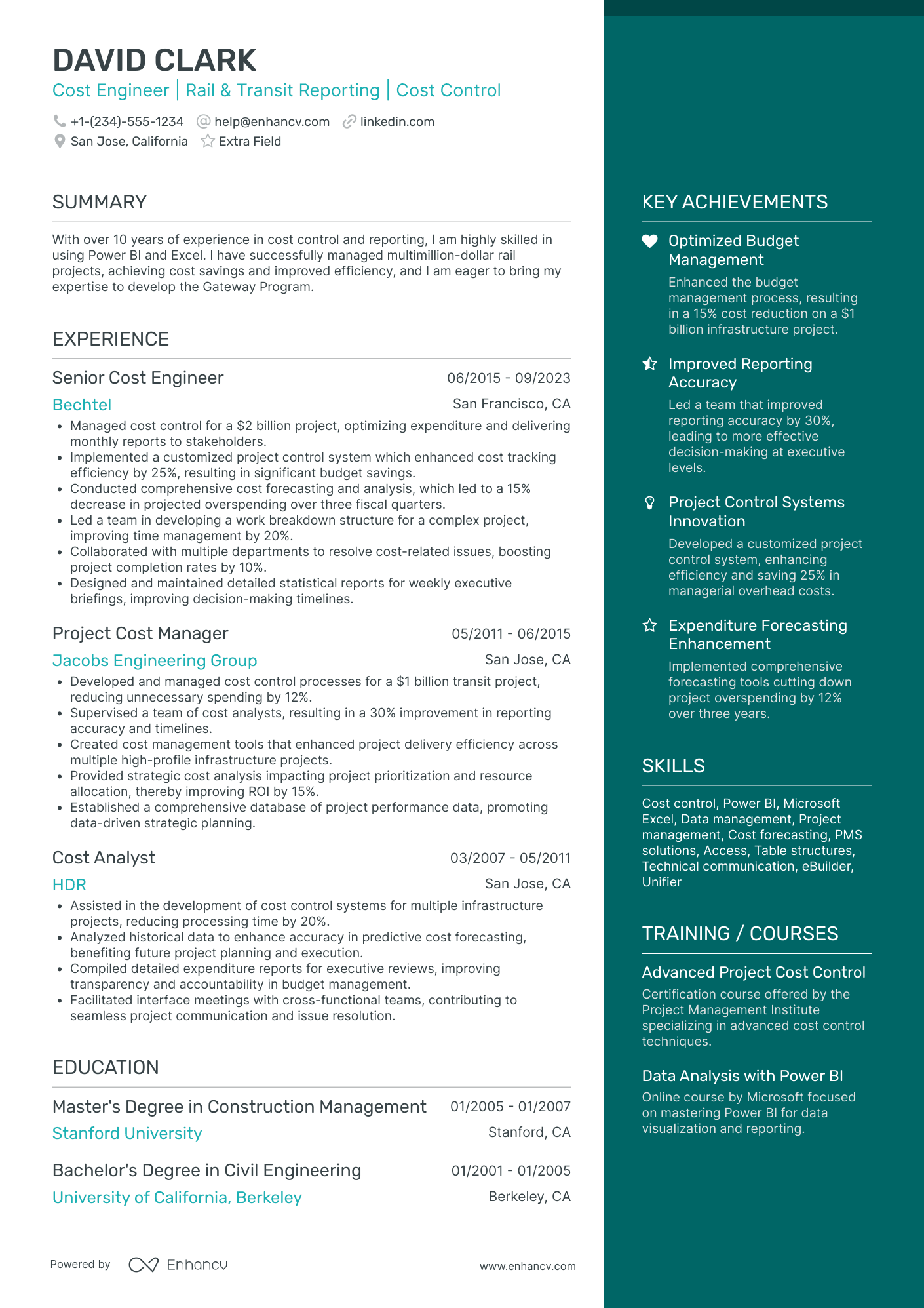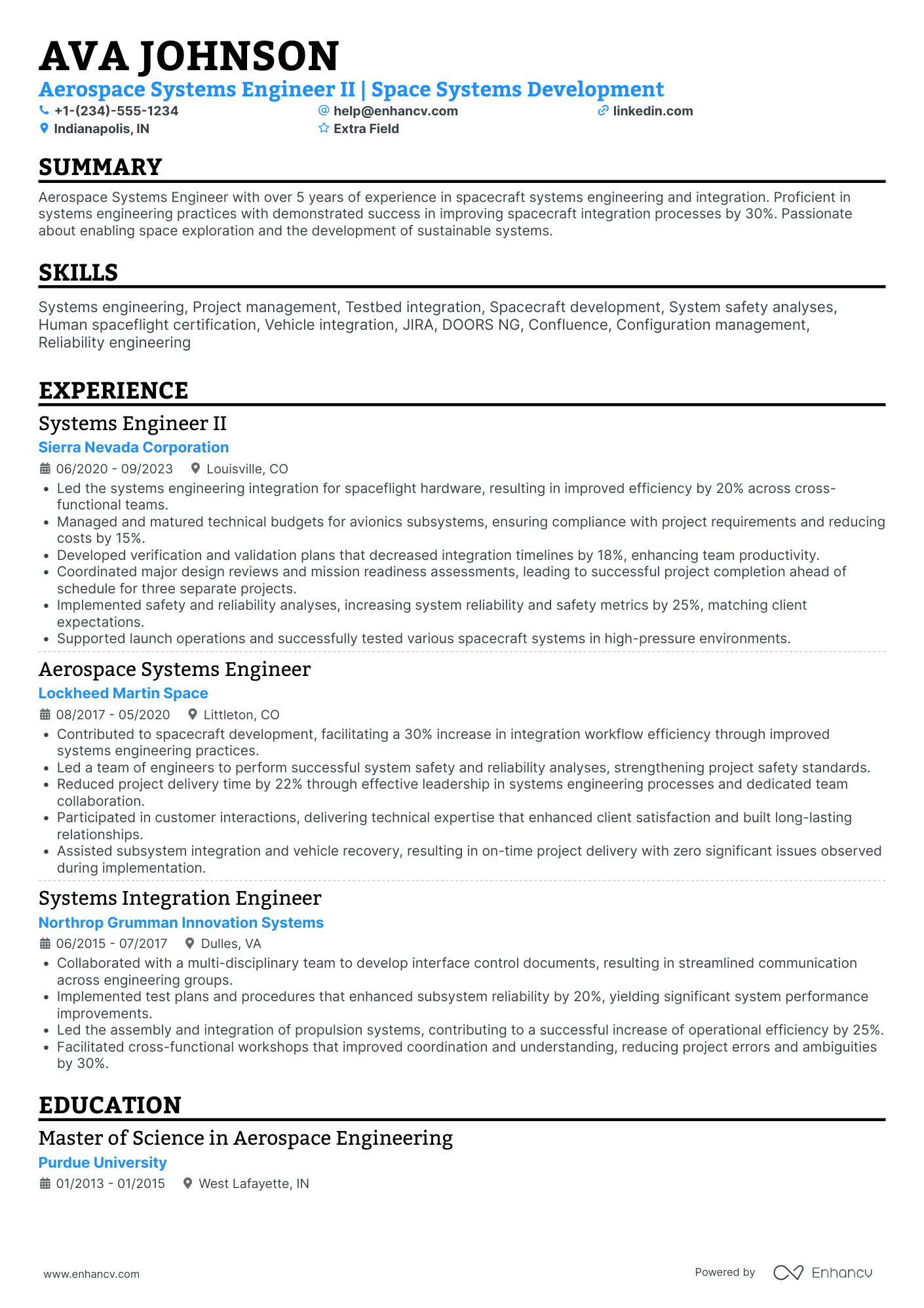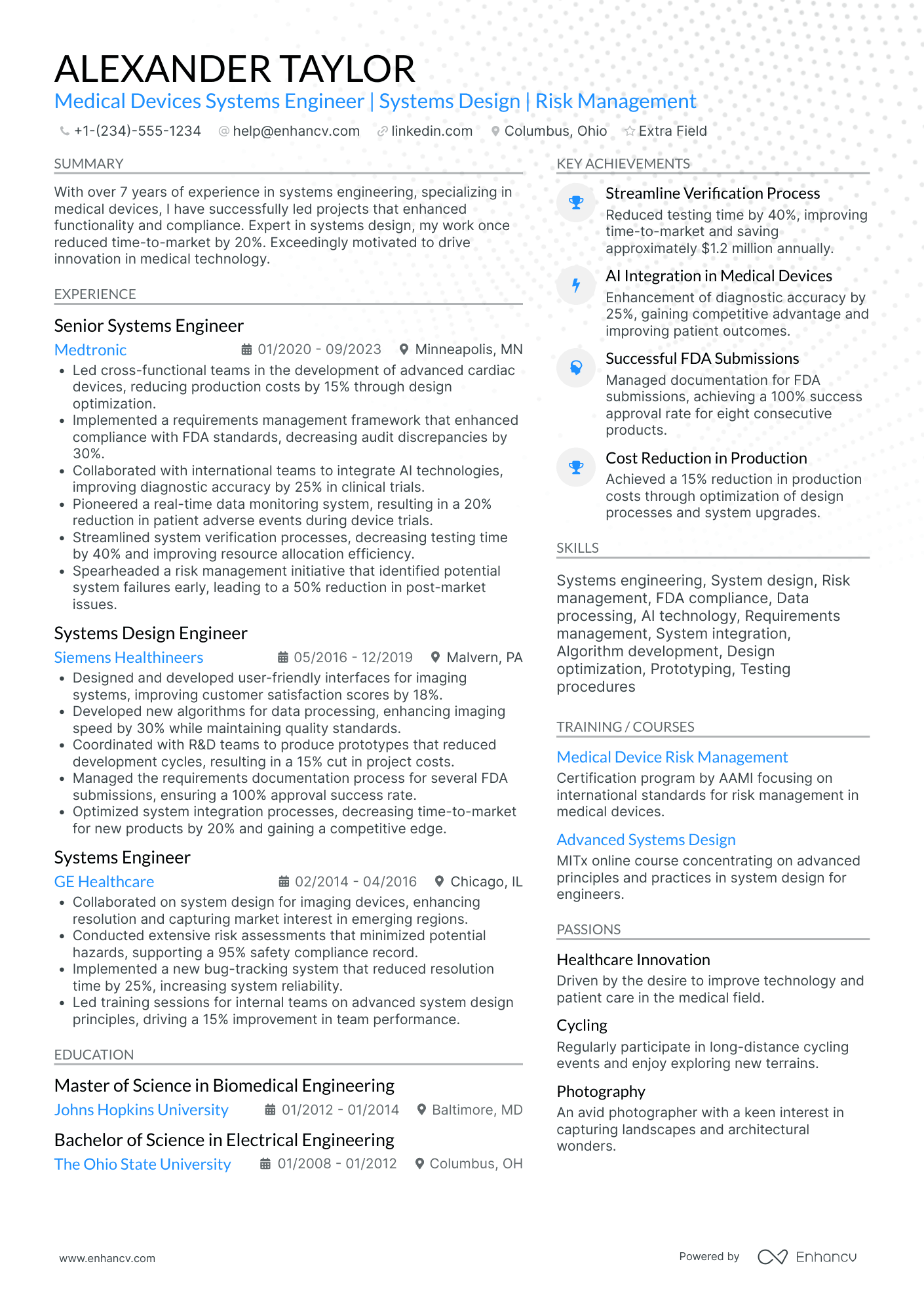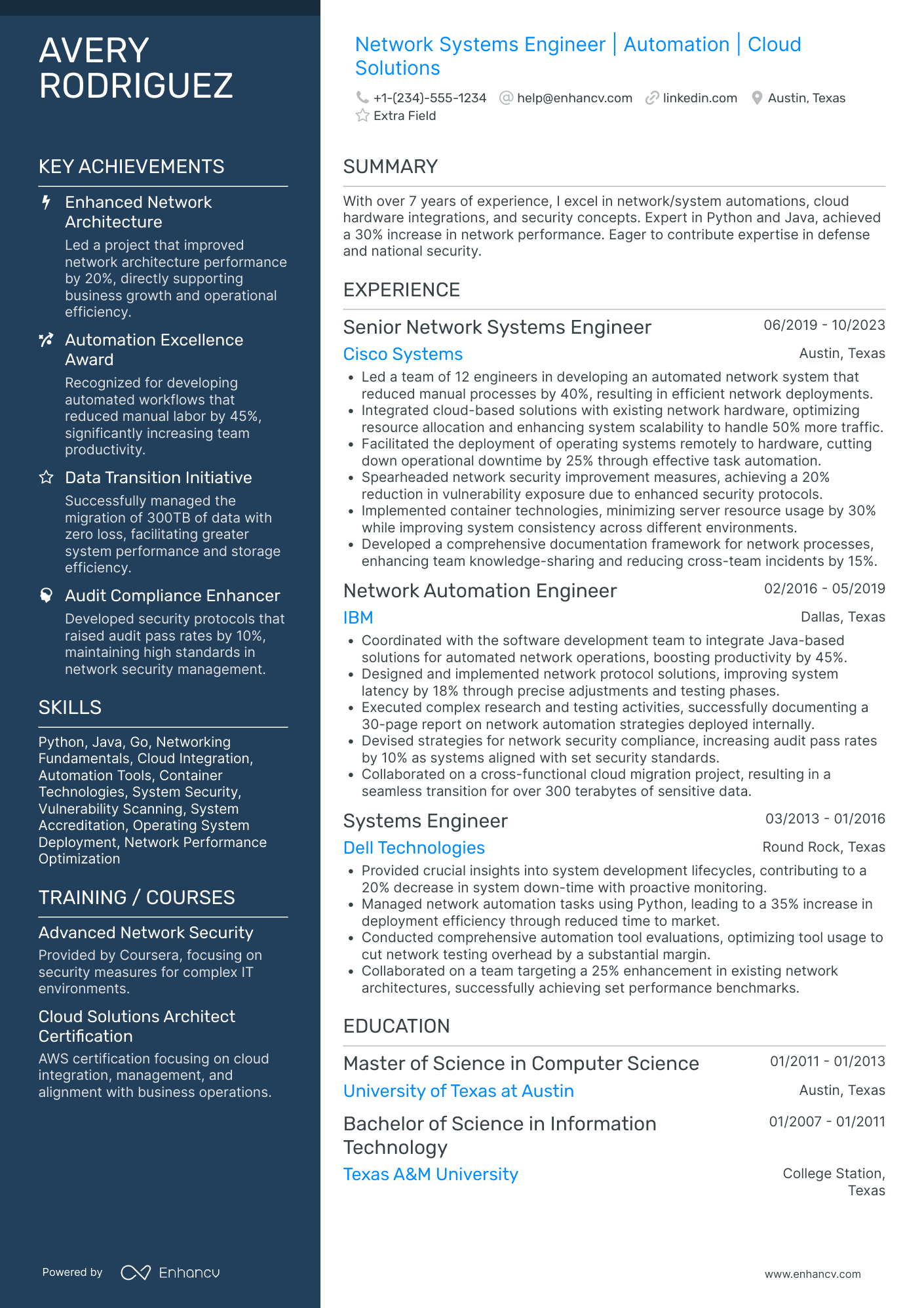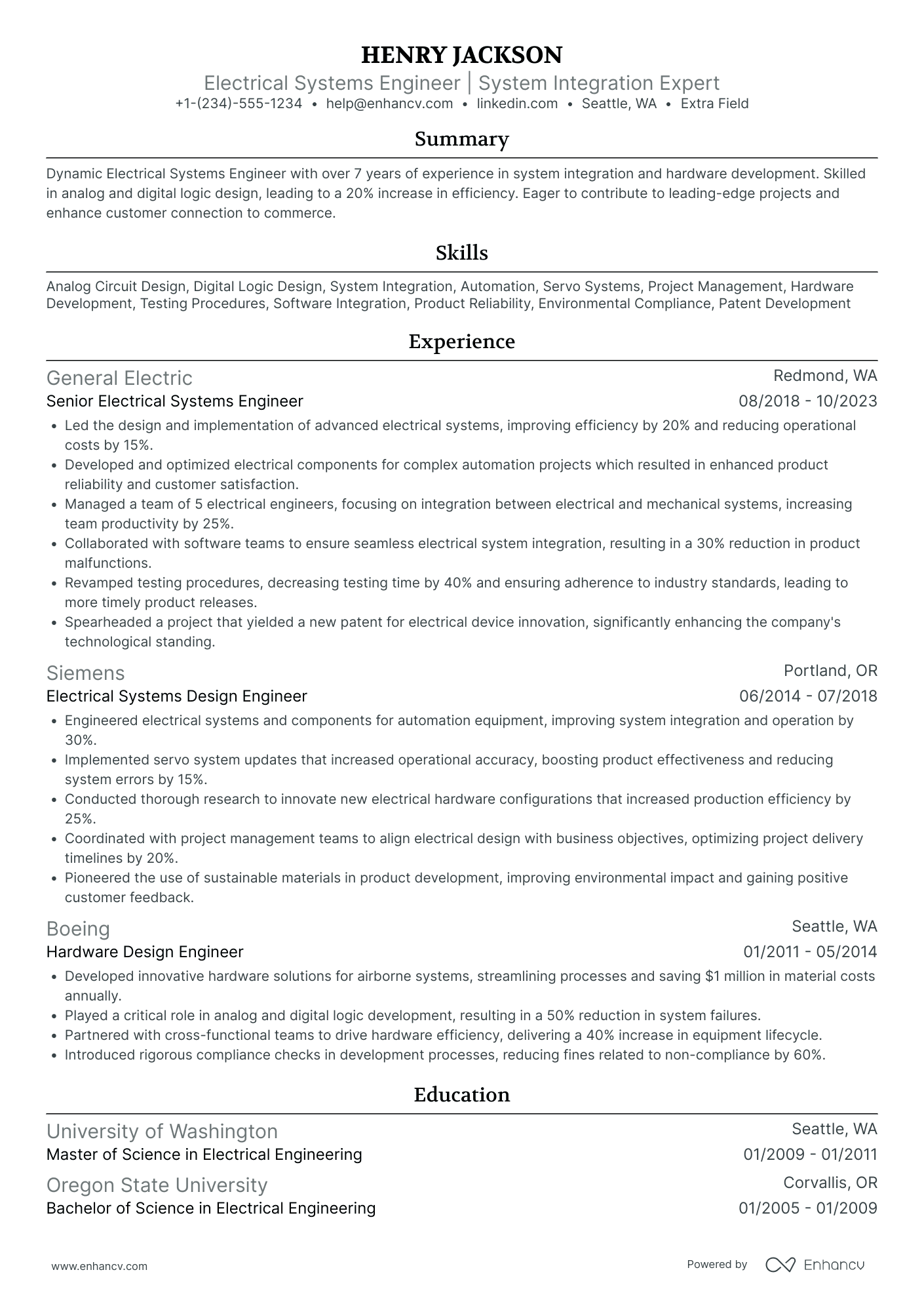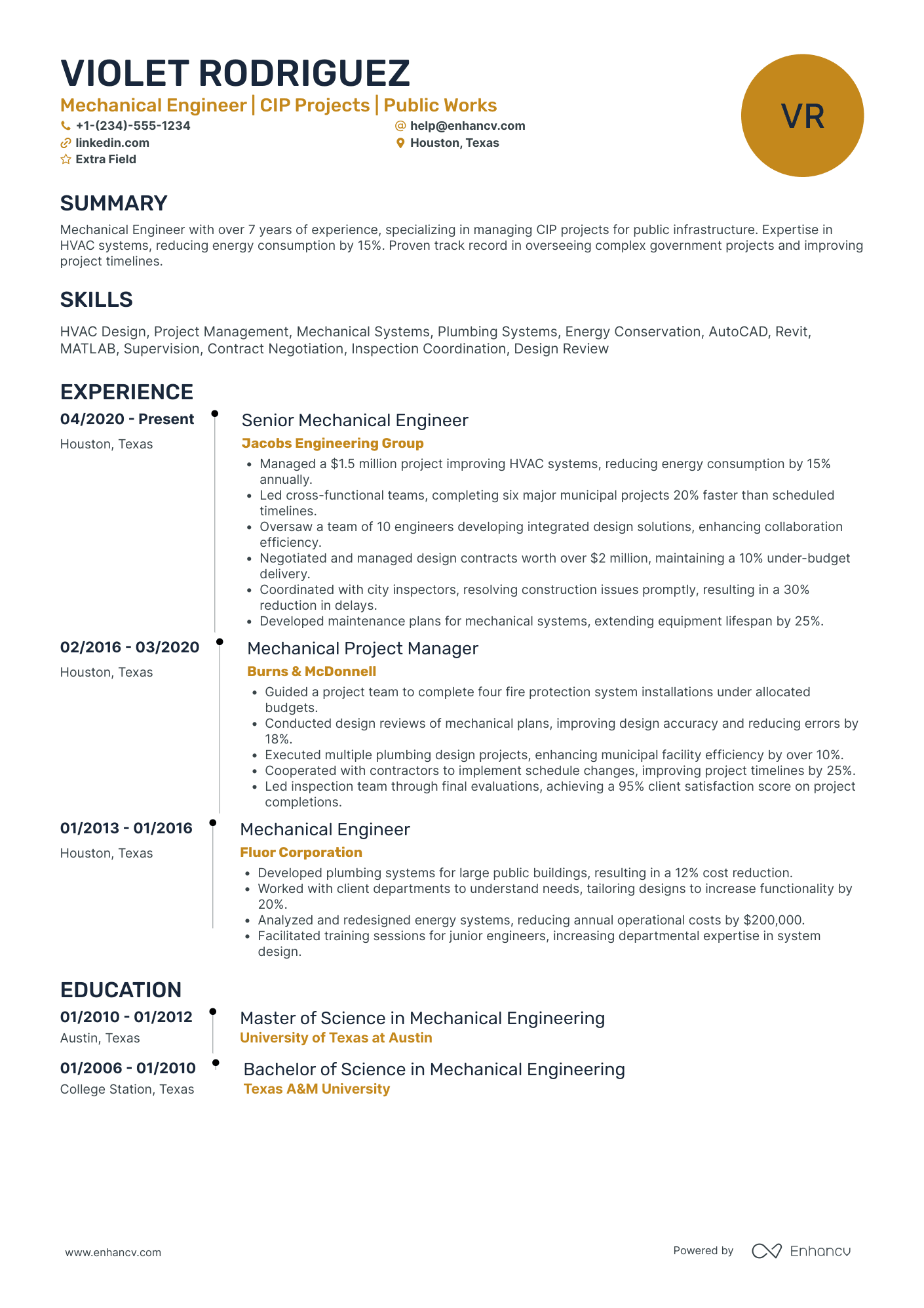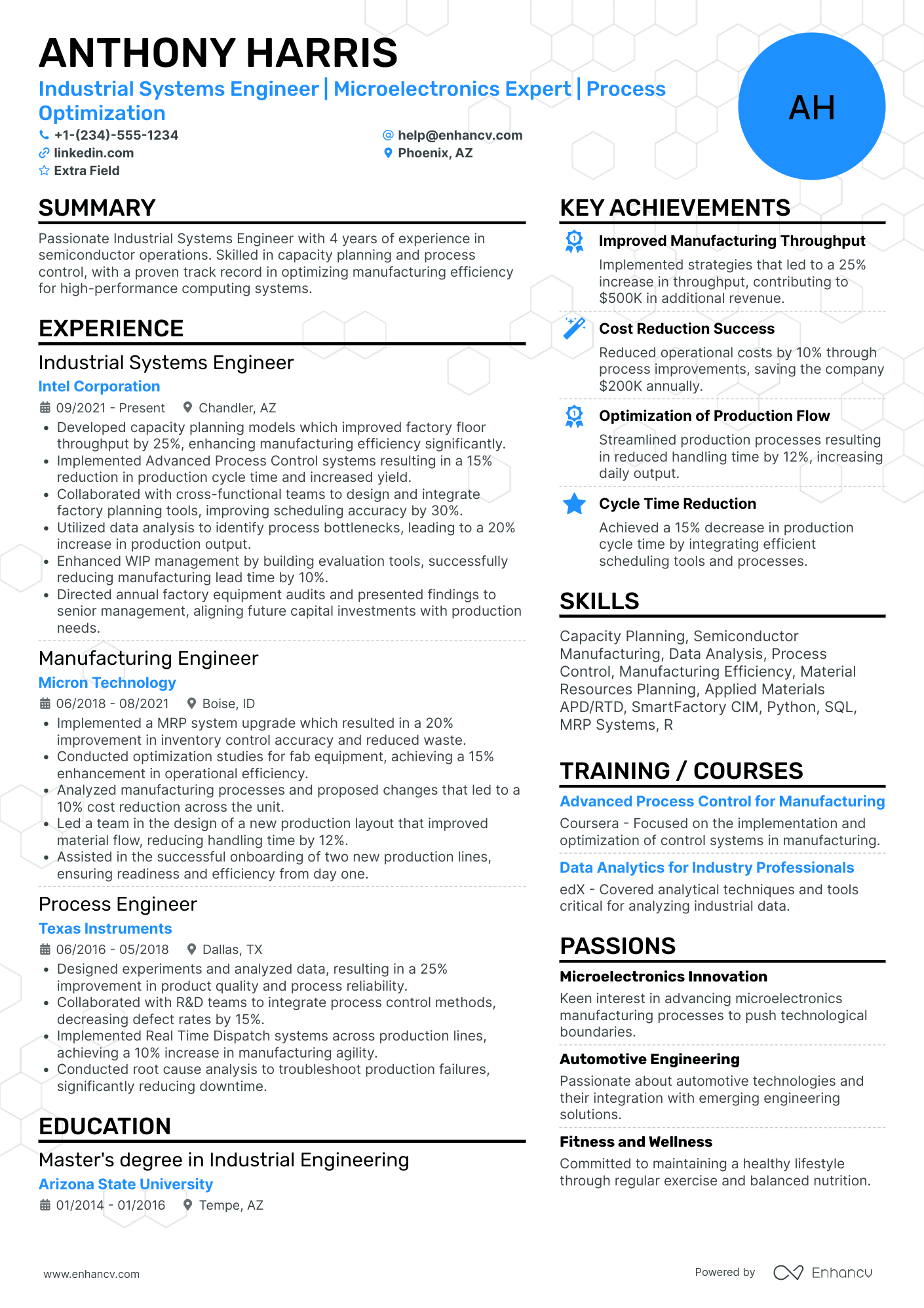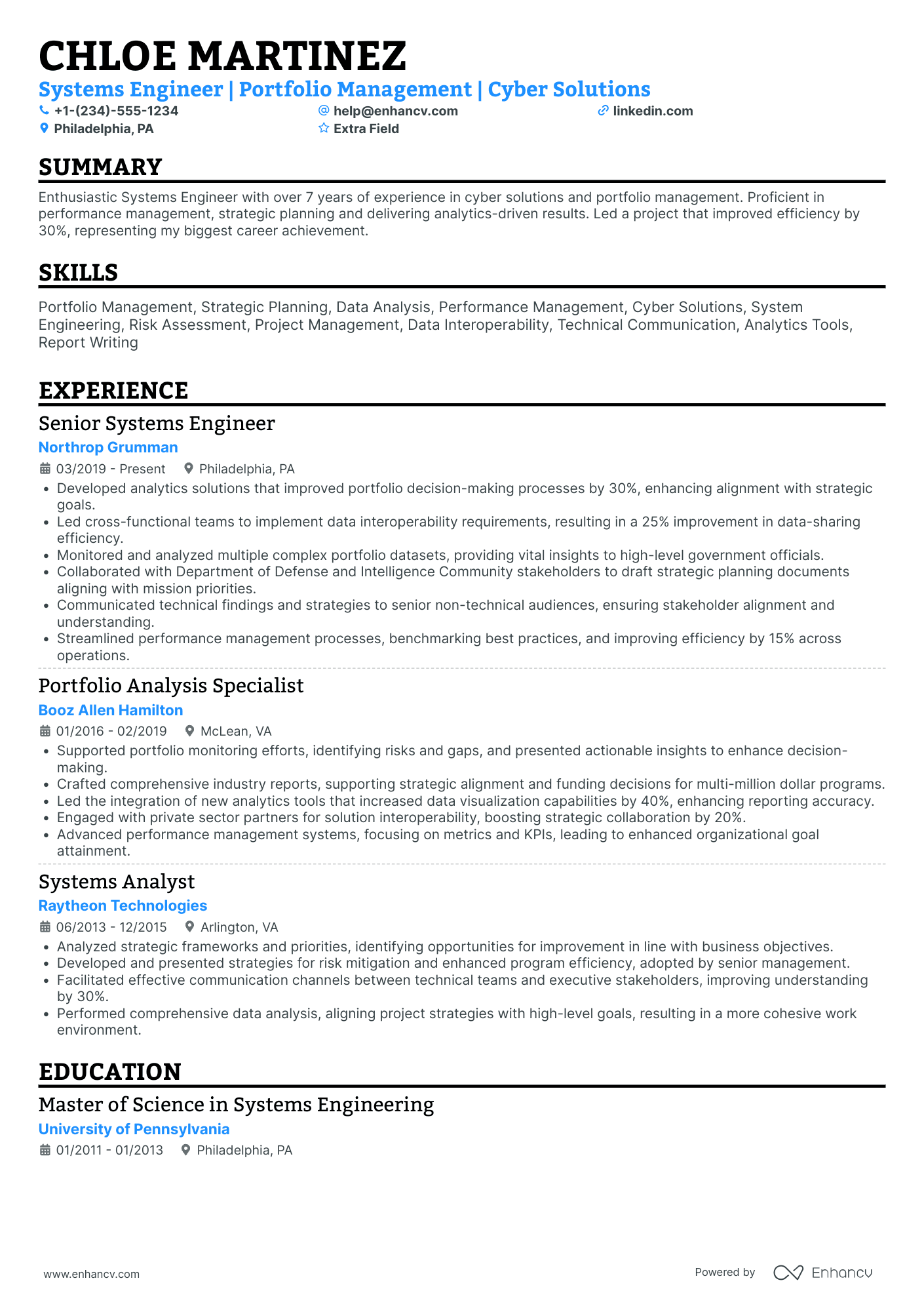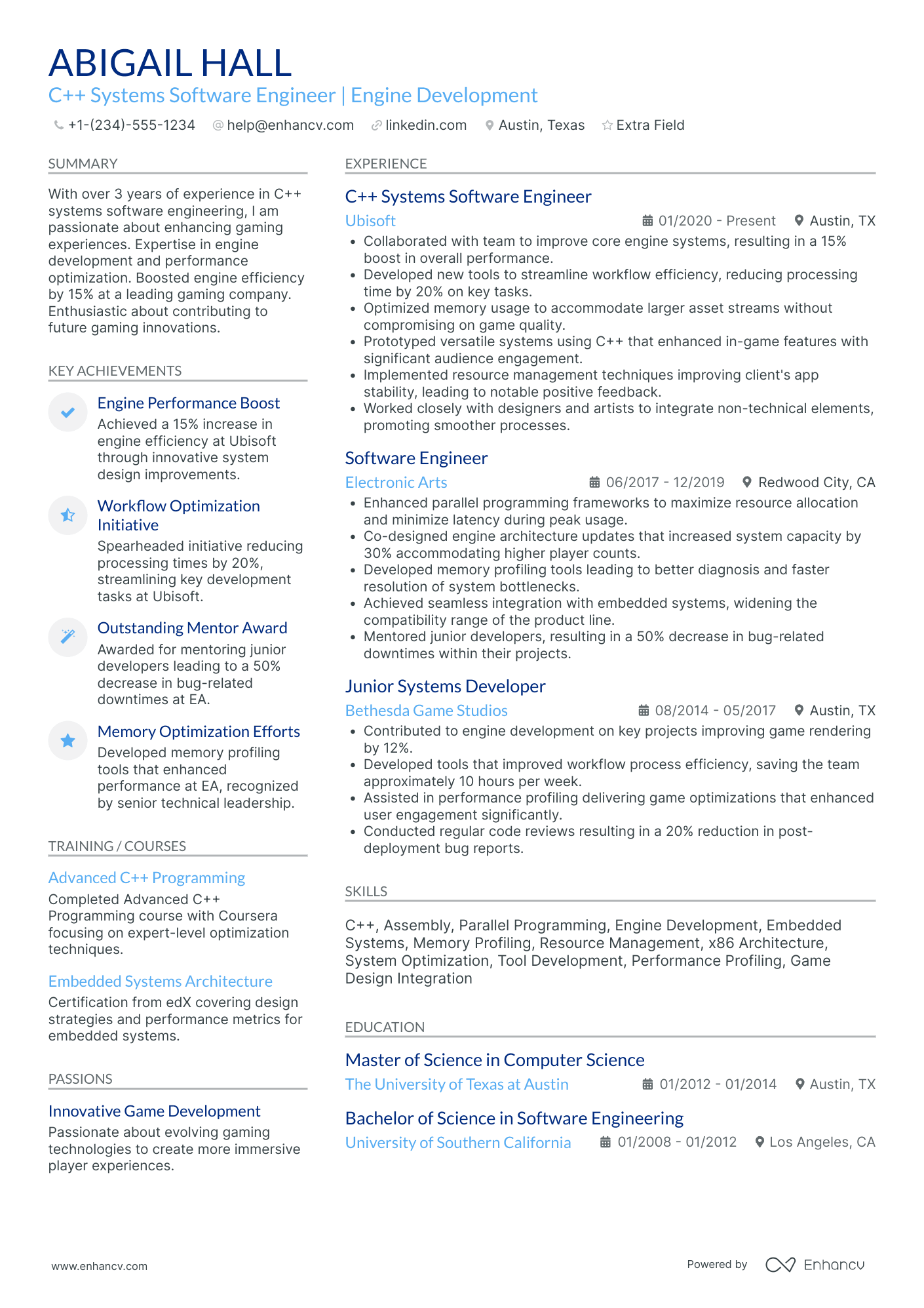Creating a System Engineer resume?
You've come to the right place.
We will conduct a root-cause analysis on your resume.
We'll identify and address the factors that lead to resume rejections.
Next, you'll learn how to apply Systems thinking to your resume.
After all, tackling system level challenges is no small feat.
Most systems today are complex and have evolved into safety critical systems.
When business and human safety are at stake, your resume will not be taken lightly.
In this guide, you'll learn:
- 4 effective systems engineer resume examples that helped real candidates get hired
- How to include your skills and certifications in your resume
- The proper way to showcase your experience and achievements on your resume
- High-impact engineering verbs and buzzwords to make your resume stand out (boolean search)
How to craft an exceptional system engineers resume
Most systems, products, and processes you'll work with are inherently prone to failure.
Enterprises have become complex systems supported by backups and safety measures.
Thus, when hiring a new System Engineer, they're looking for someone who:
1. Can navigate and comprehend the complexities of the system
2. Has the ability to collect system information and integrate findings
3. Possesses the necessary technical understanding of the Engineering field
Your System Engineer resume should demonstrate these qualities.
However, hiring managers often encounter:
Entry-level systems engineer resumes lacking relevant skills and projects that reflect real-life applications.
Senior System Engineers resumes that are merely lists of technologies, without mentioning the business impact of their work.
Your resume should be formatted to align your experience and skills with the job you're applying for.
4 formats for a systems engineer resume:
- Functional layout
- Reverse chronological layout
- Hybrid layout
- Creative resume layout
If you have a substantial amount of systems engineering work experience, the reverse chronological layout is ideal.
For entry-level systems engineers, a hybrid resume layout often works well. You can learn more about them here.
Avoid functional and creative resume layouts as most engineering recruiters don't respond well to them due to the difficulty in balancing useful information and flashy design.
What sections do we recommend you include on your systems engineer resume?
- Career Summary or objective
- Experience
- Skills
- Education & Certifications
- Keep to a maximum of 10 years work experience per page on your resume
How to write a systems engineer resume summary
To write the best resume summary, look at the System Engineer job description.
It's easy to notice the following from a job ad:
1. Industry related requirements
2. Technology related requirements
3. Technical Skills(LabView, SolidWorks, etc)
4. Years of experience
Now, your only goal with a resume summary is to impactfully write it using these 4 points. Check out these two examples below:
2 sample systems engineer resume summaries
These words won't persuade anyone, especially when applying for a System Engineer position. This generic summary is similar to what most resumes contain and won't help you stand out.
Don't let your lack of experience stop you from writing a great resume summary.
How to write the experience section of your systems engineer resume
Although your resume could be as long as the number of lines you wrote for your latest deployed application, nobody will read that. Instead, aim to include the following in your systems engineer resume:
- Include up to 10 years of work experience per page
- Describe the technologies and frameworks you used (V2X, Linux)
- Highlight the business impact generated as a result of your work
- Mention servers, systems, or applications you built and deployed (drivers, multi-threaded applications, testing frameworks, etc.)
Imagine you've just applied for a senior systems engineer position at Webflow, and your resume landed on Greg's (fictional) (Head of Product Management & CTO) desk.
- •Use management software solution to support server testing and customer demo.
- •Define and improve the quality of system level test plans
- •Support customer OS (Linux / Windows / VMware) imaging with customer-specific requirements
If Greg reads this, he'll know you improved system tests and worked extensively with customers. However, he can't gauge the scope or impact of your work, which is what distinguishes you from other candidates.
- •Assist in daily support of 36 systems/products assigned, through early detection and pursuit or changes in system responses or operation.
- •Apply basic knowledge of system components in completing assigned tasks (i.e., storage systems, Linux kernel, UNIX kernel and UNIX file system).
- •Created 20+ charts/reports to help engineers analyze data.
This is a much better experience section for the following reasons:
- You explained what you did
- Who you did it for
- The scope/impact of the work performed
Being as specific as possible on your resume will help recruiters make a decision faster and in your favor.
Entry level system engineer resume experience samples
- •Technical support
- •Developed 1000 line firmware
- •Created embedded application platform for command of stepper motors
This is a very poor way to list your experience. It's clear that you're an intern who's built some cool stuff, but from a recruiter's perspective, it's too vague to warrant an interview.
- •Designed a 4x4 2 layer PCB.
- •Led firmware and hardware development of a stepper motor control system
- •PCB with 250 components, surface mount and through hole
This is a much more effective way to showcase your expertise. If the job you're applying for requires a wealth of experience, such as an embedded or senior systems engineer role, we recommend including more engineering skills within a separate section on your resume.
Skills to include on your systems engineer resume
As a systems engineer, you understand that no two jobs are the same. Therefore, the skills to include on your resume must reflect the following:
- Your capability to perform the job
- Match the job description
Engineering hiring managers will read your resume wondering: "Will this person have an impact on our organization, or will we have to teach them?"
With that in mind, here are some skills to mention on your systems engineer resume.
Soft skills to include on your systems engineer resume
- Troubleshooting and problem-solving
- Disciplined; able to follow strict procedures
- Flexible; able to work on-call if necessary
- Adaptable; can change goals as customers and market’s needs change
- Communication; needed to build healthy relationships with relevant stakeholders
8 technical skills and software competencies to mention on your systems engineer resume
- Agile Methodologies
- Linux System Administration
- Software Development
- Enterprise Architecture
- MS SQL
- Relational Database Management
- Servers
- Unix
After adding your relevant skills, re-read your resume for prose and ensure you include the right buzzwords and verbs so that your resume gets noticed.
Do you need an education section on your systems engineer resume?
Most candidates leave the education section on their systems engineering resume as an afterthought. After all, employers don't care where you went to school, right?
Not exactly. While it's true that the more industry experience you have, the less relevant your education becomes, displaying your education is essential for recent graduates seeking entry-level systems engineering positions.
- •Thesis: Analysis of a 200 GbE line-rate shitposting system
- •Awarded National Higher Education Scholarship for academic excellence and extracurricular work
- •Two time recipient of the Faculty Academic Scholarship
Notice how this candidate included the achievements and awards they received during university. This approach is much more attractive to employers, especially if you're an entry-level systems engineer with little work experience.
Lastly, supplement your education with relevant engineering certifications. If you've obtained or are working towards the MCSE or INCOSE ASEP, it will put you in a recruiter's good books.
Systems engineer certifications to include on your resume
- INCOSE ASEP / CSEP / ESEP
- Microsoft Certified systems engineer (MCSE)
- Net+
- CCNA/CCENT
- VCP
Key takeaways
- Start with a reverse-chronological or hybrid resume format
- Include the right verbs, buzzwords, and keywords in your resume, so it appears to recruiters when they use Boolean search
- Show off your interpersonal skills through your experience rather than just saying it. E.g., Keeping key stakeholders up to date on progress and blockers demonstrates good communication skills.
- Show, don't tell. Highlight the impact you had during your tenure.
- Add certifications you're working towards or have obtained in a separate section
Systems Engineer resume examples
By Experience
Senior Systems Engineer
Entry Level Systems Engineer
Junior Systems Engineer
Lead Systems Engineer
By Role
IT Systems Engineer
Embedded Systems Engineer
CCTV Systems Engineer
Control Systems Engineer
The Control Systems Engineer role often emerges from a foundation in electrical or mechanical engineering disciplines, hence principles from these areas heavily influence expectations.
The following tips might boost your application for Control Systems Engineer positions in the industry:
- Familiarity with control systems software and design tools, such as MATLAB, LabVIEW, or AutoCAD, is highly valued. Emphasize your design software skills in your resume, but don't stop at listing them. Instead, chart out achievements related to these tools.
- Highlight your knowledge of particular control systems standard or different industrial protocols, such as Modbus, Profibus or DNP3. Show how these proficiencies evolved an existing system's performance.
- Display your experience with various hardware elements common in control systems, like PLCs. Specifically, talk about projects where you had to adjust the tuning parameters of a control system and the impact it had.
- Always follow the 'skill-action-results' approach in your resume to create results-oriented content.
